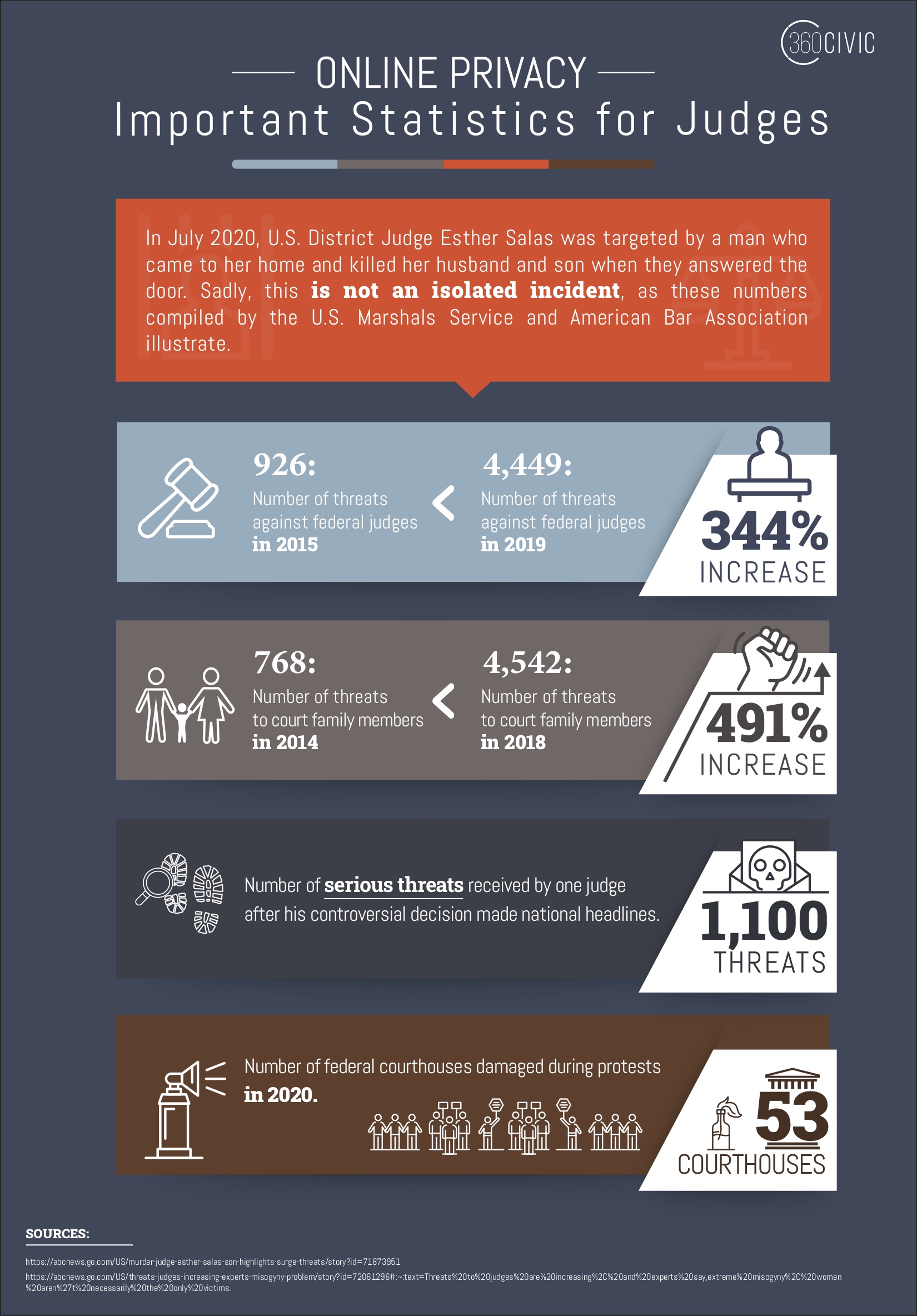Imagine you’re a judge, faced with a decision that will impact one of the hot-button topics in our nation – immigration, perhaps, or abortion. You reach your decision, it makes headlines and is covered in national news broadcasts. What happens next?
No need to imagine – it already happened in Los Angeles. A judge who ruled on an immigration case received more than 1,000 threats deemed by law enforcement as “serious”. Thankfully, none were acted upon. But U.S. District Judge Esther Salas was not as fortunate: she was targeted by a man who came to her home and killed her husband and son when they answered the door.
Isolated incident? Not anymore. “Doxing” – the act of publicly revealing previously private personal information about an individual or organization through the internet, is now a common occurrence. In 2015 there were 926 threats against federal judges; four years later, that number had increased more than 300%. Threats against family members of court officials have risen as well, from 768 in 2014 to 4,542 in 2018.
Why has it gotten worse? Perhaps the political divides in the country are a contributing factor; perhaps more people feel emboldened to take the law into their own hands because they don’t trust our institutions anymore.
But whatever the cause, it is sadly also true that the process of locating the address and phone number of judges and attorneys has been made easier because of companies defined as “people finder websites.” There are more than 50 of them, and they specialize in compiling comprehensive information profiles about most of us, information anyone can acquire on the internet.
That means the brother of the man you just sentenced to ten years will likely have no problem finding out where you live.
What Can Be Done?
Here’s the good news: California has a law that protects personnel in the legal profession from having their home information listed on websites. That law applies to all websites, whether or not they are located in California. However, most sites ignore the law until someone orders them to comply.
That’s what we do. Our IronWall360 team has found and removed more than 1 million listings of addresses and phone numbers for those enrolled in our program.
This is not a new service for us. Our proven protection service, made possible through proprietary technology, has been protecting judges and other professionals for more than ten years. Current clients include the California Superior Court in the counties of Orange and Sacramento, among many others.
You can try to take steps to keep your personal information offline. We even created an eBook to help you do so. But for less than the cost of a monthly Netflix subscription, you could have IronWall360 professionals monitor millions of websites on your behalf, and help to keep you and your family safe.
Read our eBook on privacy protection
Sign up for our Ironwall360 Protection Program






